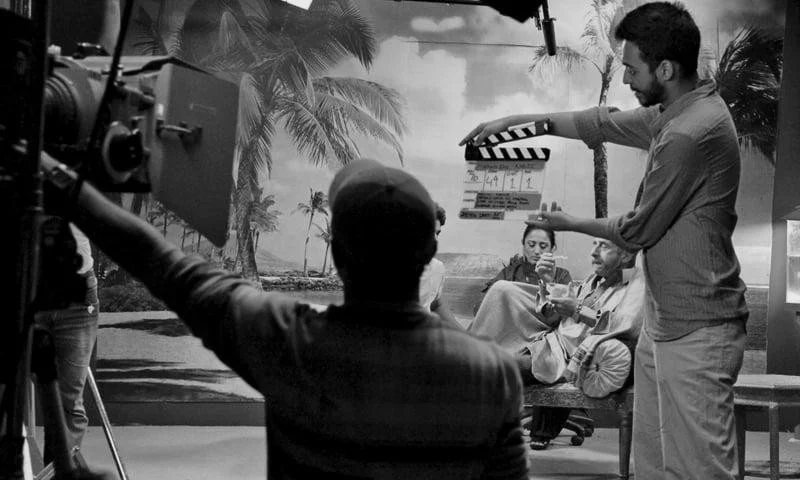ABOUT
When Screens Go Dark is a multidisciplinary art project that examines film censorship in Pakistan. It looks beyond censorship as a legal process and explores it as a cultural, political, and social force. Through visual art layered with original film scripts, symbolic censorship, and erasure, the project explores how state institutions, religious authorities, and extremist groups control narratives and limit creative expression.
Censorship in Pakistani cinema operates on multiple levels. Officially, the Central Board of Film Censors (CBFC) and provincial boards (Punjab and Sindh) regulate films under the Motion Pictures Ordinance of 1979. The stated goals include protecting moral standards, preventing offense to religious or cultural values, and safeguarding national sentiments. However, these broad and often vague guidelines have allowed for the suppression of films that:
Criticize government corruption or religious institutions
Address taboo topics such as sexual violence, gender identity, or LGBTQ+ issues
Challenge patriarchal norms or promote political activism
Beyond the state, informal censorship has become equally powerful. Political parties and conservative social groups frequently pressure authorities or threaten filmmakers. This often leads to self-censorship and the withdrawal of films that had already passed official review.
The consequences of censorship are far-reaching. Silencing films not only denies audiences access to diverse narratives but also marginalizes the very communities those stories represent. While globalization allows some banned films to reach international audiences, their absence at home means the people most affected by these stories are excluded from the conversation.
Yet, even in the face of repression, Pakistani filmmakers, artists, and activists continue to resist. Their efforts highlight the resilience of creative expression and the public’s desire for open dialogue and cultural reflection.
When Screens Go Dark seeks to make these struggles visible. It invites viewers to consider the power dynamics behind censorship, the voices it silences, and the importance of resisting cultural erasure both in Pakistan and beyond.
Behind the Scenes — Zinda Bhaag (2013)
Naseeruddin Shah in character during the shoot of Zinda Bhaag, directed by Farjad Nabi and Meenu Gaur. The film became a landmark in the revival of Pakistani cinema and was Pakistan’s official submission for the Best Foreign Language Film at the 86th Academy Awards.
